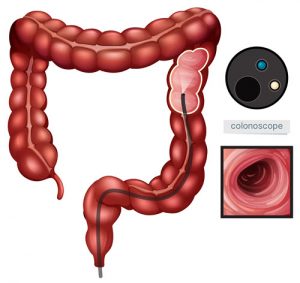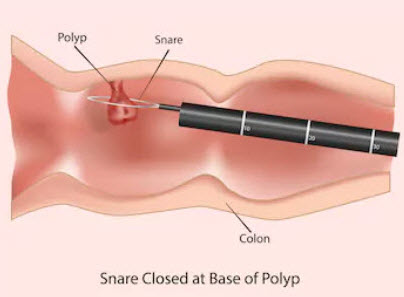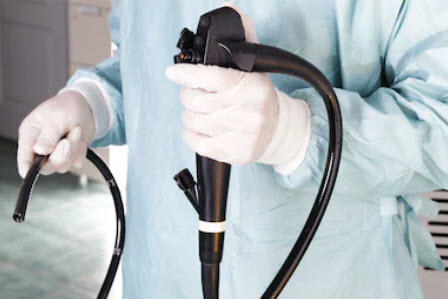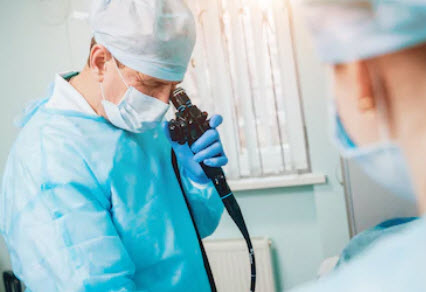Colonoscopy
COLONOSCOPY is a visual examination of the lining of your colon (large intestine).
A long flexible tube (colonoscope) is passed through the rectum, and around the colon.
Through this telescope the doctor will be able to look for any abnormalities that may be present.
If necessary, small tissue samples (biopsies) can be taken during examination (painlessly) for laboratory analysis.
Polyps (abnormal growths of tissue) can also be removed using an electric snare wire.


Preparation
To allow a clear view, the colon must be complete free of waste material. Instructions will be provided for bowel preparation before your colonoscopy procedure.
What Will Happen?
You will be admitted and a cannula placed in a vein in your arm. You will be placed in a comfortable position on your left side and may be given medication by injection through the cannula to make you sleepy and relaxed.
The doctor will pass the colonoscope through the anus and into the rectum and advance it through the colon. You may experience some abdominal cramping and pressure from the air which is introduced into your colon. This is normal and will pass quickly.
How Long Does it Take?
The examination takes 15-60 minutes.


What Happens Afterwards?
You will remain in the recovery area for 2-3 hours, until the effects of any medication wear off.
A companion MUST be able to drive or accompany you home as the sedation impairs your reflexes and judgement.
For the remainder of the day, you should not drive a car, operate machinery, or make any important decisions. We suggest that you rest quietly.
You may eat and drink the night after the procedure.
Are There Any Risks?
Colonoscopy can result in complications, such as reactions to medication, perforation of the intestine, and bleeding. These complications are very rare (less than 1 in 1000 examinations), but may require urgent treatment, and even an operation.
The risks are slightly higher when a colonscope is used to apply treatment, such as removal or polyps.
Be sure to inform us if you have any severe pain, black tarry stools or persistent bleeding in the hours or days after colonoscopy.
